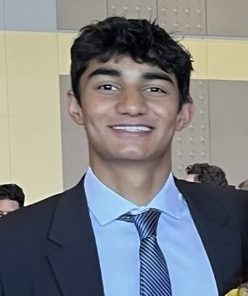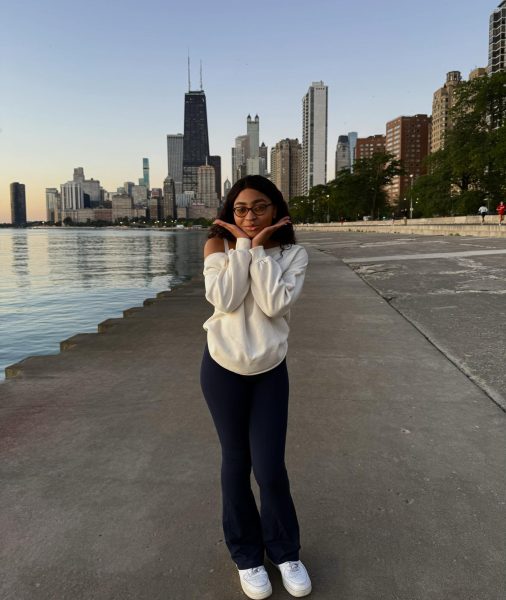For many years, guest speakers have played a vital role in enriching Latin’s educational experience by exposing students to difficult and conflicting dialogues. However, Latin’s commitment to displaying diverse viewpoints while maintaining a safe and welcoming environment has proven challenging.
Latin’s Guest Speaker Policy, written and maintained in the Faculty Handbook, was created to ensure that invited speakers align with Latin’s mission, contribute to the educational program, and, most notably, maintain responsible, respectful manners to all identities and beliefs.
For students, guest speakers typically facilitate a diverse understanding of identities, which helps avoid using harmful assumptions, stereotypes, or generalizations about a peer’s identity or current event. “Generalizations normally lead us to make assumptions about people—[we] create gaps in opportunities to have authentic communication when we overgeneralize about someone or a group of people, [and are led] to make assumptions, lots of bias, [and led] to stereotypes,” Kasey Taylor, Interim Director of Diversity, Equity, and Inclusion (DEI), said.
However, implicit bias can slip through the cracks of background checks.
Since the 2022-23 school year, there have been at least two occasions of bias entering the Latin campus. Last year, a guest speaker was brought in with anti-Israel views, and this year, another guest speaker made a racially appropriating comment to a student. Consequently, an incident of bias report was filed.
These incidents have emphasized the importance of Latin’s Guest Speaker Policy and the need to thoroughly vet the speakers themselves.
The speaker must abide by several protocols to ensure the safety of community members and the success of their presentation. The topic of discussion must align with Latin’s mission and educational program, avoid the use of profane or condescending language, and not discriminate or promote hatred against or between identities.
Then, during their visit to Latin, if a guest speaker were to violate any of these protocols, they would be requested to leave the premises. “Whichever adult brought them in, they’d be responsible for while they were here,” said Eleannor Maajid, Interim Director of Enrollment Management & Financial Aid and former Diversity, Equity, and Inclusion (DEI) Director. “If they said anything or did anything, it would be up to that adult to say, ‘Okay, this is not appropriate for our campus.’”
In spite of adults being in charge of flagging what is and is not appropriate, the Latin community has experienced two incidents of discriminatory behaviors and sentiments over the last two years.
“When you’re going to have a speaker speak to students and speak to children, you want to mitigate as much harm or mitigate as many issues as you possibly can,” Ms. Maajid said. “When you vet a speaker, you want to make sure you know what you’re getting, because you want to account for future issues.”
Latin has a strict policy to filter the speakers brought into the school, with extensive regulations, protocols, and committees established by the DEI team. “Our speaker vetting process, called the Latin School of Chicago Guest Speaker Policy, is on RomanNet and available for everyone,” Ms. Taylor said. “We use this so that we can go through certain checks and balances so that when someone wants to bring in an outside guest, we make sure that both the person hosting, and the guest who is coming, are on the same page and in alignment with Latin School values and the way that we are trying to provide education opportunities.”
Latin’s Guest Speaker Policy tasks a committee of faculty, staff, and administrators to review all requested guest speakers. The committee considers various criteria including communicating with students in an age-appropriate manner and avoiding speakers with associated safety concerns or past behaviors (such as inappropriate social media content) that may violate Latin’s DEI principles.
Last year, when Hoda Katebi, an endorser of the Boycott, Divestment, and Sanctions (BDS) movement, was brought in for a Difficult Dialogues panel, many students began to question how and why Latin authorized this speaker.
However, at the time of Ms. Katebi’s panel, the Guest Speaker Policy had yet to be formally created.
Ms Maajid, who was in charge of the DEI team at the time, said, “The policy was created after that [panel]. There was some kind of vetting, but it was not something that was written down and considered a policy.”
This year, the Jewish Student Connection (JSC) brought in a Holocaust survivor to share her experiences with the Upper School. Following her presentation, the speaker was invited to a classroom to continue her discussion, where she made a comment to a student that was viewed as racially insensitive and discriminatory.
Senior MiKayla Boyd, the student to whom the Holocaust survivor was speaking, recounted the incident. “I said, ‘I think people are protesting for many reasons, and a lot of people have reasons to stand in solidarity,’ and that’s when [the speaker] asked me, ‘Why are Black people so antisemitic?”
“In that moment, I did feel afraid and self-conscious, because I didn’t mean at all to be antisemitic, and I don’t think I was. Just not really feeling like I really [had] a voice, already being the only Black kid in the class,” MiKayla said.
While Upper School history teacher Debbie Linder, the teacher in the classroom, was able to pause the conversation and address the comment, the pre-established Guest Speaker Policy failed in this situation. However, it was not necessarily the policy’s fault.
Upper School history teacher Matt June said, “I think it is essential that we have the space and ability to interrupt and/or counter ideas that are inaccurate and do not represent our values as an institution. It sounds like that is what happened in the moment during class on Friday, as Ms. Linder challenged the racist assumption in [the speaker’s] question.”
Despite the past incidents, Latin’s DEI representatives say they have no short-term plans to alter the Guest Speaker Policy.
“At the moment, there isn’t anything that wasn’t followed according to the protocol,” Ms. Taylor said. “However, we know that things will happen—we can’t be in control of in-the-moment situations, so right now we don’t have a decision to necessarily change the protocol.”
This sentiment is shared by Ms. Maajid. “I don’t necessarily think it should be changed,” she said. “You can’t always control what people are going to say, but it’s how do we react to it and what do we do about it after it happens.”
Along with enforcing the policy more effectively, the DEI team has begun specific documentation of the recent incident. “Documentation, for us, is to give us something to think—was something missed along the way, was there a way we could have been more proactive, did we follow our guidelines? It just helps us be reflective and more prepared for the future,” Ms. Taylor said.
Additionally, conversations of awareness and the necessary skills to handle difficult dialogues and situations have been further emphasized. “Generally speaking, when we think about an outside guest coming into our classroom setting, that is less scripting, because there is a conversation in a natural, organic way,” Ms. Taylor said. “That’s where we have to be prepared, not only building our awareness of what to be listening for but to be prepared with the skills to facilitate in that moment and to interrupt something if needed.”
Despite the robust Guest Speaker Policy, recent incidents have prompted ongoing reflection to guarantee that future guest speakers align with the school’s values and DEI principles.
“They did use that situation and that incident as a learning and teaching moment, so I do think that was the best way they could have handled it,” MiKayla said. “I think being mindful that there’s a lead up to [these incidents] getting bad—it’s like a snowball effect—so catching that initial snowball before it gets too big.”
Ms. Taylor said, “Mistakes will happen. That’s just a part of being in community and trying to be authentic in community with one another. Instead of saying we can’t do this anymore, the approach we would want to take is what are we learning from this moment, how do we continue building our skills in a way that makes us feel more aware and equipped in the future.”



















































Deborah Linder • Sep 11, 2024 at 7:18 pm
Thank you for writing this story!